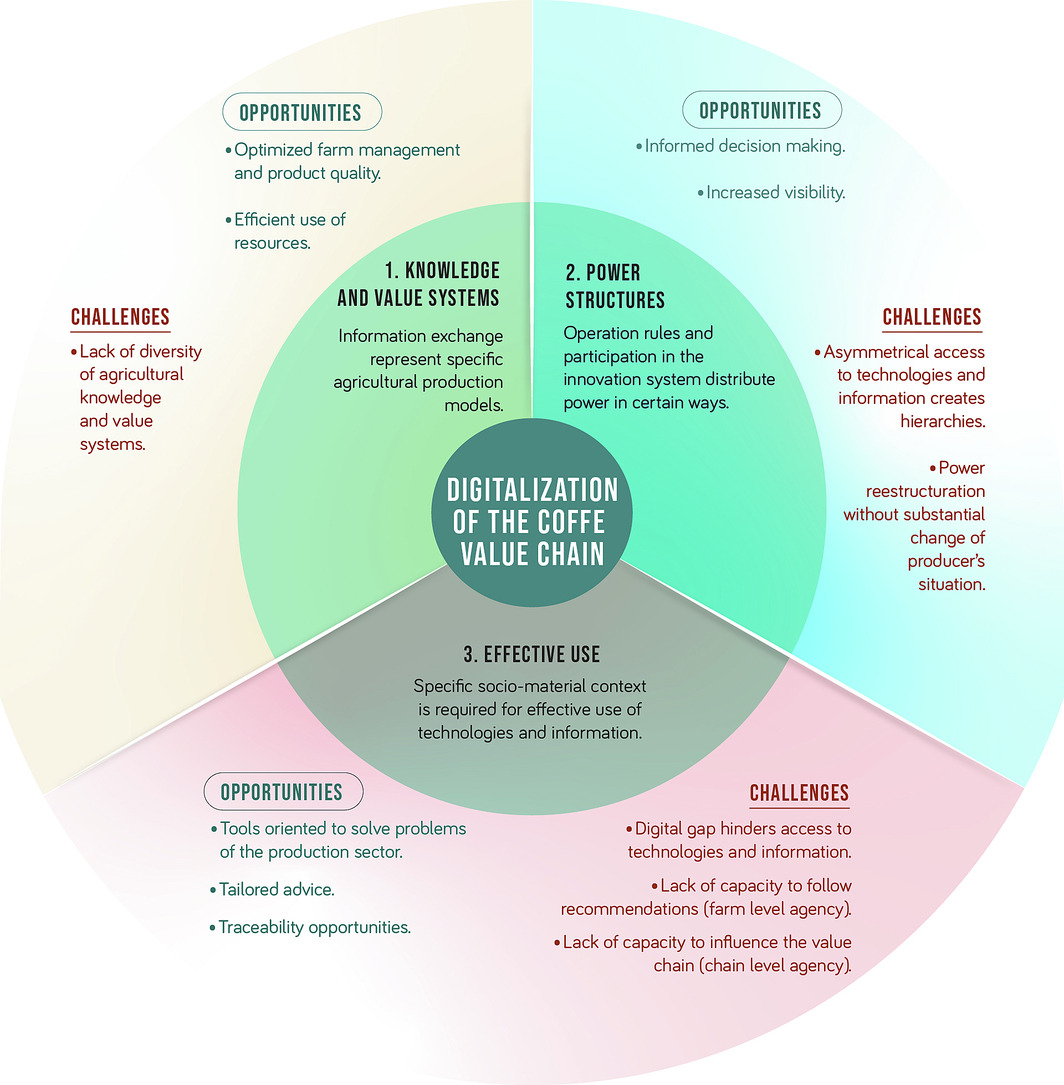May 2023 | AGRICULTURAL SYSTEMS
The University of Hohenheim in Germany, in collaboration with researchers from Austria, conducted a study to assess the potential of digital technologies in addressing sustainability challenges in the coffee value chain. The study aimed to critically examine the socio-environmental consequences of the digitalization process in this industry.
The researchers analyzed the technical characteristics of 20 digital tools designed for the coffee producing sector. They reviewed existing literature and conducted online interviews with the developers of these tools. Through qualitative analysis, the study focused on three main themes: knowledge and value systems represented, power structures, and effective use of digital technology.
The analysis revealed two pathways of digitalization in the coffee value chain, each impacting different dimensions of sustainability. The first pathway involved digital advisory services that aimed to optimize production using conventional agricultural practices for the commodity market. The second pathway focused on trade platforms and traceability systems, which enhanced producer visibility and facilitated participation in differentiated markets. However, access barriers to technologies created asymmetrical participation among producers.
The study emphasized that digitalization in the coffee value chain primarily focused on optimizing production through the use of synthetic inputs and traditional extension models. It also highlighted the role of centralized power structures in facilitating more efficient social coordination.
The significance of the study lies in its analytical framework, which considers digital technologies as a configuration of different technical arrays. This approach provides a nuanced understanding of the impacts and patterns of digitalization for agricultural development. The findings indicate that the sustainability outcomes of digitalization in the coffee value chain are complex and not straightforward.
Graphical abstract






